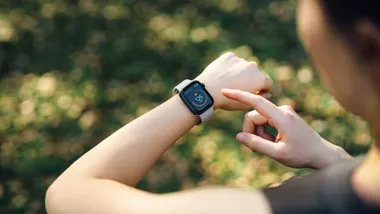Most of us are aware of the relationship between what we eat and good health, but do our food choices also affect the health of our environment?
Reducing our emphasis on animal foods in favour of more plant-based foods is one way we can help to reduce our impact on the environment. This is partly because the production of meat and other animal foods requires more land, water and energy resources than plant-based food production.
Poor sleep increases diabetes risk
You can do your bit to help the environment by including more plant-based whole foods in your diet. Choose from a variety of foods including fruit, vegetables, wholegrain cereals and breads, legumes, nuts, seeds and soy foods. One idea to help reduce your carbon footprint is to adopt Meat-free Mondays. Dishes such as tofu stir-fries, lentil bolognaise, vegetable lasagne, kidney bean burgers or chickpea curry are all “green” options, particularly if they are organic. And remember – what’s good for the environment is also be good for you!
In addition to eating more plant-based whole foods, here are a few of our favourite ways to protect the environment.
Try to buy produce that is grown locally and in season to save on the energy required for transportation and storage. Check out your local farmers’ market for fresh, high-quality local produce. Visit www.farmersmarkets.org.au to find a market near you.
If locally grown produce is too hard to find, grow your own. Even a few items such as your own tomatoes, lettuce or herbs can help the environment – and your food bills.
When you can, buy organic. It’s better for the environment (and you) because its production doesn’t use pesticides or herbicides and sustainable farming practices are often used.
Simple things such as turning the tap off while you brush your teeth, reducing the length of your shower by a minute and using grey water (collected after doing a load of dishes or clothes washing) in the garden can make a big difference.Related video//’); document.write(”); document.write(”); document.write(‘This video requires the Adobe Flash Player. Download a free version of the player.’); document.write(”); document.write(”); document.write(”); Msn.Video.BuildPlayer(msn_IP_uniqueName,{skin:”0″,bsbpg:””,mk:”en-au”,mkt:”en-au”,brand:”ninemsn”,fr:”inline”,ad:”true”,timePlaying:”180″,c:”v”,v:msn_IP_GUID,ap:”false”,t:”s275″,ch:”true”}); //]]>
Australians, on average, throw away more than $1000 worth of food a year, so try to use what you already have (especially perishables in the fridge) before you go shopping for more. Think of ways to reduce waste, such as using a shopping list to help you avoid buying unnecessary items, and adding any organic waste, such as vegetable peelings, to the garden compost.
Related video
Why not make next Monday a meat-free day? Check out Sanitarium’s website at www.sanitarium.com.au for plant-based meal inspirations the entire family will enjoy!











